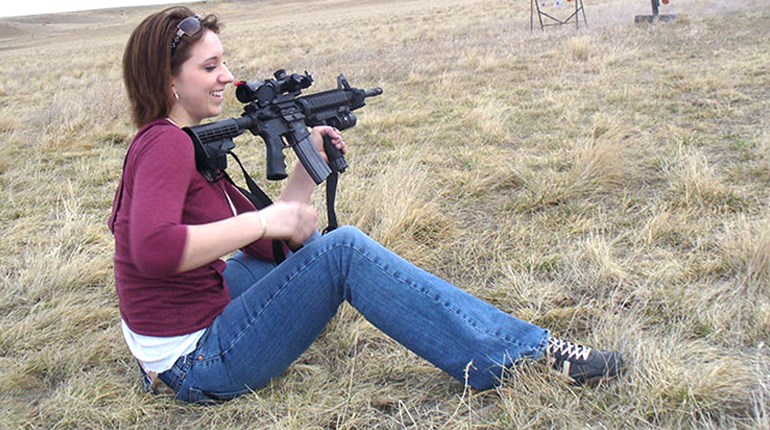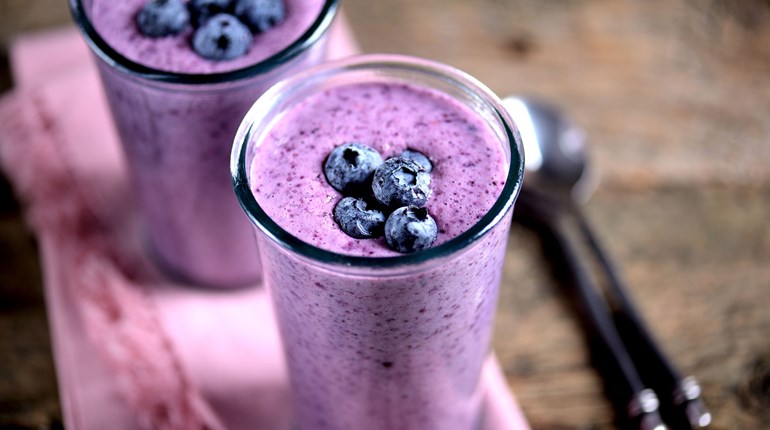
It has come down to this day, this hour, this minute and these last few seconds: You find yourself weak, tired and nervous. A mental haze begins to set in, but you know your trophy is just one shot away. All of that hard work, dedication, diet and exercise really made it all possible for the winners' circle. Some of you are thinking, “diet and exercise?” Yes-making that shot count would not have been possible if you were not at the ideal fitness level. What does “ideal fitness” mean? Well, it's the generalization that the body is suitable to perform a certain task or role. You have to remember that the ideal fitness level of a competitive shooter is much different than that of an Olympic gymnast or relay swimmer. Through diet, exercise and this article you will find not only your body healthier with more stamina, but a healthier and stronger mind.
There is a lot of controversy out there on the term “diet.” Depending what you read, watch and hear, you'll get a lot of conflicting information. Essentially, diet is your body's fuel; it is what your body needs to maintain itself. If the proper fuel is not there, then the body does not run at peak performance. As a competitive shooter, you are an athlete who depends on peak performance-mentally and physically. Balancing your diet is critical, along with sufficient hydration (that's “drinking enough water”). Following “fad” diets can be unhealthy, not to mention potentially dangerous.
Balancing Your Diet
How do you find a healthy balanced diet? We went to some sports dietitians and found that “a balanced diet for shooting athletes is one that provides a wide variety of foods across all food groups, including carbohydrates, protein and a small amount of ‘healthy' fats.”
Fats
You've probably heard that fats aren't healthy. Nothing could be further from the truth. Fat is a macronutrient without which you can't survive. But not all fats are created equal: Candy bars, potato chips and ice cream have higher concentrations of saturated fats and trans fats, which can have some bad long-term effects and should be eaten in moderation. What your body needs are good fats. They can be found in foods such as: nuts, olive oil, soy milk, peanut butter, fish and avocados, just to name a few.
Carbohydrates
Consuming carbohydrates (carbs) in your diet is essential to the processing and storing of energy in your body. Your body uses carbohydrates to make glucose (sugar) which turns into energy, whether you use that energy right now or save it for your workout later. When it comes to choosing which carbs to eat, think natural. Vegetables, fruits and whole grains contain the carbs your body will need as well as fiber, which helps keep you feeling full.
Protein
Protein is one of the building blocks of the human body. As a shooting-sports athlete is it imperative that you consume the correct amount of protein in your diet. Protein is found in many foods, but lean protein is what is essential. Lean protein like that found in fish, eggs, beans, legumes, chicken, turkey, wild game and lean cuts of beef should be a staple of your diet. Protein helps your body rebuild, keep stamina, balance hormones, and is essential for healthy organ operation.
Hydration
Hydrating your body is critical. Our bodies are made up of nearly 70 percent water weight. The trick is that by the time your thirst kicks in, you are already dehydrated. Water is the simplest, cheapest and easiest to get. An average person should drink roughly six to eight glasses of water a day to stay healthy, focused and full of energy. Limit processed drinks such as sodas, concentrated drinks and energy drinks, because they frequently contain extra sugar and caffeine...neither of which is helpful when you are trying to keep a nice, steady hold on your target.
Putting it all together
Now that you know what your body needs, you can sit down and put together a diet plan that suits your lifestyle. A good rule of thumb is to avoid heavily processed food. Smaller, healthier meals, eaten more frequently throughout the day, are much healthier than skipping lunch and stuffing yourself at dinner. If you feel a snack attack-grab a bowl of cherries, a handful of almonds or an apple to curb that mid-day hunger.
Competition Day
As a competitive shooter, you are required to stay focused and energized so that you perform at your very best. On competition day you will need to select foods that will provide you fuel throughout your day. To do so you will want to focus on complex carbs. Complex carbs are broken down and stored in your liver for when you need the energy, which will prevent you from feeling hungry while competing. If you feel the need to refuel mid-stride on competition day, select foods that are unprocessed and contain those complex carbs. Refrain from energy drinks. These drinks will elevate your heart rate and give you the jitters. Stick with water; it is your best friend! If it's warm out or you find yourself sweating profusely, you may consider a drink that contains potassium. Potassium is an electrolyte that helps the body function properly.
Exercise
Now that you have begun thinking about your diet, let's talk about the next step in the process of achieving your ideal fitness level-exercise. To maintain and achieve a healthy level of fitness you must work on three components: flexibility, cardiovascular fitness and muscle strength. This does not mean you have to join a gym or devote many hours of hard work. A simple half-hour walk after dinner will improve your fitness. You can make simple changes to your daily activities like taking the stairs instead of the elevator, push-mowing the lawn instead of ride mowing, etc.
Flexibility
Working on your flexibility is important for healthy muscle development and a healthy body, especially for the shooting sports. The easiest thing for you to remember is to stretch. Stretch gently before a workout, after a workout, before shooting practice and before competition. Stretching prepares and loosens your muscles, improves circulation and prevents muscle injuries.
Cardio
Cardiovascular health is the most critical for maintaining a healthy heart and circular system. Bad cardiovascular health can lead to major health conditions such as: high cholesterol, stroke, pulmonary hypertension, heart health, disease, cancer and much more. Good cardiovascular health makes it easier and faster for your heart rate to slow down after a spike, which will help you when shooting. Cardio workouts should elevate your heart rate and increase breathing rhythm. For a cardio workout to be beneficial, elevated heart and breathing levels should be sustained for a minimum of 10-15 minutes per day.
Muscle Strength
Building muscles for the shooting sports is very important to your success as a shooter. It will give you the muscle stamina you need to endure an all-day shooting event. For instance, holding a rifle in the standing position may become tough during those last few shots, but with a well-trained body, you will be able to withstand those pressures.







































